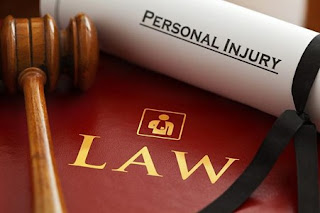Most Common Types of Personal Injury Cases
If you find yourself looking for a lawyer, chances are it’s for a personal injury case.
Such cases account for most civil lawsuits in the United States. Attorney Joseph Taraska explains that each involves damage to something, a loss, or an injury to someone that was caused by another’s negligent actions.
Although the definition varies, in general negligence is the failure to use reasonable care which results in an injury or loss. The type of injuries and losses that are compensable also vary by jurisdiction and in some cases, there are caps or limits on the amount of compensation that can be awarded.
Another category of liability is strict liability. In certain circumstances, the law will hold someone liable for the consequences of an act even when there was no fault, and the individual took precautions to avoid injury. For example, participating in an ultra-hazardous activity such as blasting or storing flammable liquids in a densely populated area has been found to be ultrahazardous by some courts. In addition, manufacturers have been held to be strictly liable for a defective product under some circumstances.
Personal injury cases may also involve so-called intentional wrongs committed by an individual, which in addition to criminal penalties may be the basis for compensable civil liability. Examples may include such acts as assault or battery.
What Needs to Be Proven
Typically, plaintiffs who file personal injury lawsuits must prove the essential elements of negligence. These include.
1. A duty that one owes to another---such as the duty to use reasonable care when driving.
2. A breach of the duty-- such as reckless driving.
3. Injury, loss, or damage which was caused by the negligent act.
The Most Common Types of Personal Injury Cases
Vehicle Accident
Claims from motor vehicle accidents are the most common form of personal injury cases. In 2020 there were over 5 million car accidents in the US, leading to millions of injuries and about 40,000 deaths.
Those injured, including pedestrians, bike riders, passengers, or drivers may be eligible to receive compensation for their injuries and financial losses that occurred following the accident. Such losses include among other things past and future pain and suffering, medical bills, and lost wages. A family member of a seriously injured or deceased person may also be entitled to the loss of that person’s affections as well as the loss of services provided by the injured person.
Medical Malpractice
Although most medical practitioners provide excellent care and deserve our trust, they are human and at times serious injuries may occur as a result of a negligent act. In some cases, a personal injury related to medical care may involve multiple individuals as well as a hospital or other medical facility.
Examples of medical malpractice may include surgical errors, misdiagnoses, prescription mistakes, or a failure to communicate among treating practitioners.
Property Owner Negligence
Property owners may be held labile if an accident on their property is the result of conduct deemed negligent. Typically, this may mean that an accident is the result of a property owner not making a hazard clearly apparent.
The criteria and strictness of laws in other common property owner negligence cases, such as those involving dangerous dogs or falls, vary from state to state.
Workplace Accident
This type of personal injury case involves someone being injured or killed while on the job. In many states, the lawsuit isn’t technically brought against an employer but rather proceeds as a claim pursuant to state law, such as a worker’s compensation act.
Such acts often designate specific compensation, such as medical treatments, a lump-sum payment, or periodic payments.
This post is not meant to be all-encompassing but rather to provide the public with a starting point when considering if they have suffered an injury, they believe was caused by another. The best course is to seek the legal advice of an attorney who is experienced in personal injury law. Always remember that in some circumstances there are time limits to bringing certain claims.
.




Comments
Post a Comment